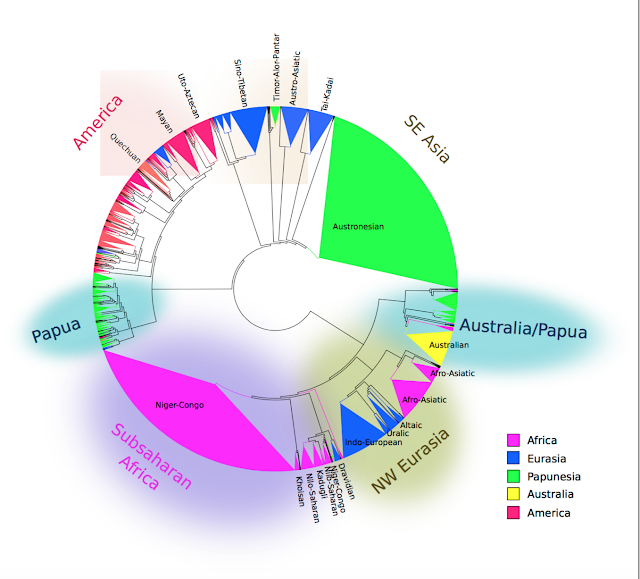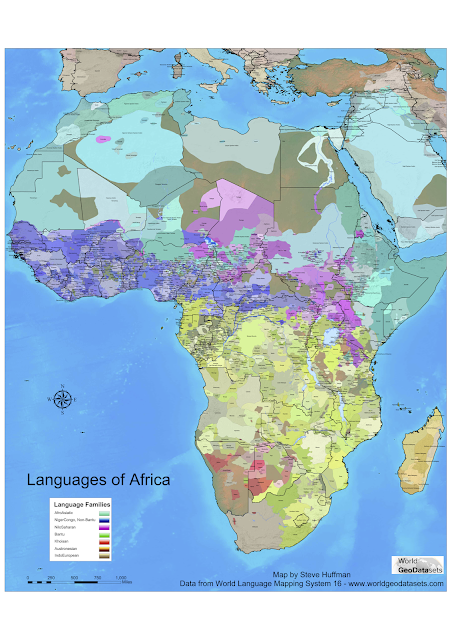About
This blog is written by a bunch of young linguists who are interested in language diversity, disparity, change and evolution. For more on the authors, please go here. This blog was started by Suzanne and Hedvig while they were working at MPI Nijmegen on a grammatical survey of African languages, in 2014. It was originally a space to vent about what it's like to read lots of grammars, but now it's expanded into more topics.
We write about things that concern linguistic diversity, change and description. We also cover evolutionary/historical linguistics, psycholinguistics, variation etc. Our focus is not basic introduction to linguistics for the public, but news and information that matters to linguistics, in particular junior researchers and research students. The tone of this blog is sometimes quite informal, we do enjoy our gifs and memes. Don't let that fool you though, we also write serious posts about current research.
In the menu to the left, you can see tags that we have used.
Common tags
Static pages
Besides blog posts, we also maintain a few static pages with information. They are:
Follow us elsewhereYou can also find us on
Posts made on this blog get automatically posted to these other outlets. If there's any change in the post, the most updated version is found here on Blogspot.
Disclaimer
This blog is not an official blog for any of the academic institutions that the authors are part of. Opinions and ideas expressed here are of the authors only, they do not necessarily represent the universities, centres or research projects of the authors.
We write about things that concern linguistic diversity, change and description. We also cover evolutionary/historical linguistics, psycholinguistics, variation etc. Our focus is not basic introduction to linguistics for the public, but news and information that matters to linguistics, in particular junior researchers and research students. The tone of this blog is sometimes quite informal, we do enjoy our gifs and memes. Don't let that fool you though, we also write serious posts about current research.
In the menu to the left, you can see tags that we have used.
Common tags
- hopefully helpful for linguistics students
- current linguistic research
- maps
- free online linguistic databases
- languages in numbers
Besides blog posts, we also maintain a few static pages with information. They are:
- Guide to linguistic terminology
- Open Acces Publishing in Linguistics
- Free Online Linguistics Databases
- Free Online Manuails and Tutorials for Tools for Linguists
Follow us elsewhereYou can also find us on
Posts made on this blog get automatically posted to these other outlets. If there's any change in the post, the most updated version is found here on Blogspot.
This blog used to be only on tumblr, but it was later moved to Blogspot/Blogger. There's lots of old posts on Tumblr, why not go to tumblr and read everything we did before we moved to blogger? In particular, check out the tags Free Online Linguistic Databases and Goodie From Grammar Reading. The tag for everything before blogger is "humanswhoreadgrammarsbeforeblogger".
Why “Humans”?
The blog is called Humans Who Read Grammars because a few of the authors have a boss who likes to contrast them to (and perhaps also would like to replace them with…) Computers Who Read Grammars. Thus, we are the Humans Who Read Grammars.Disclaimer


